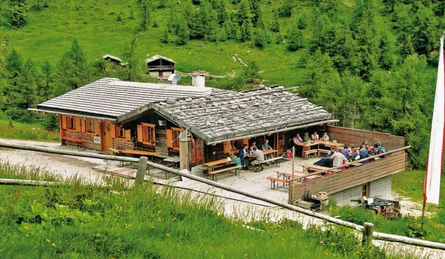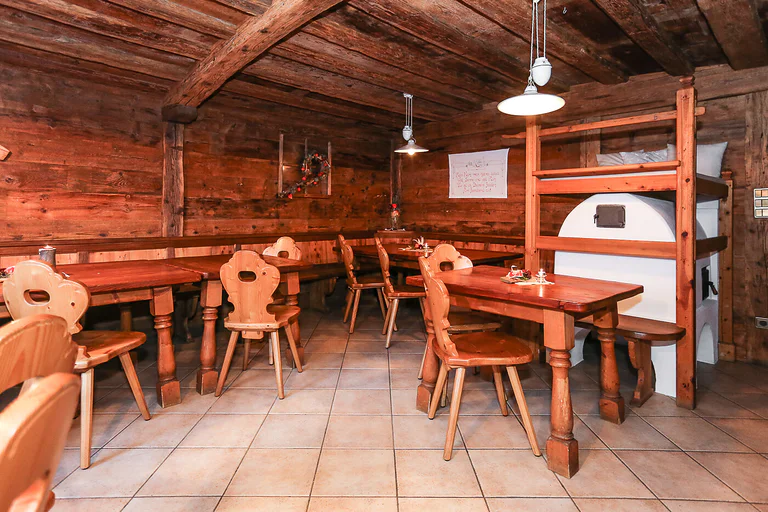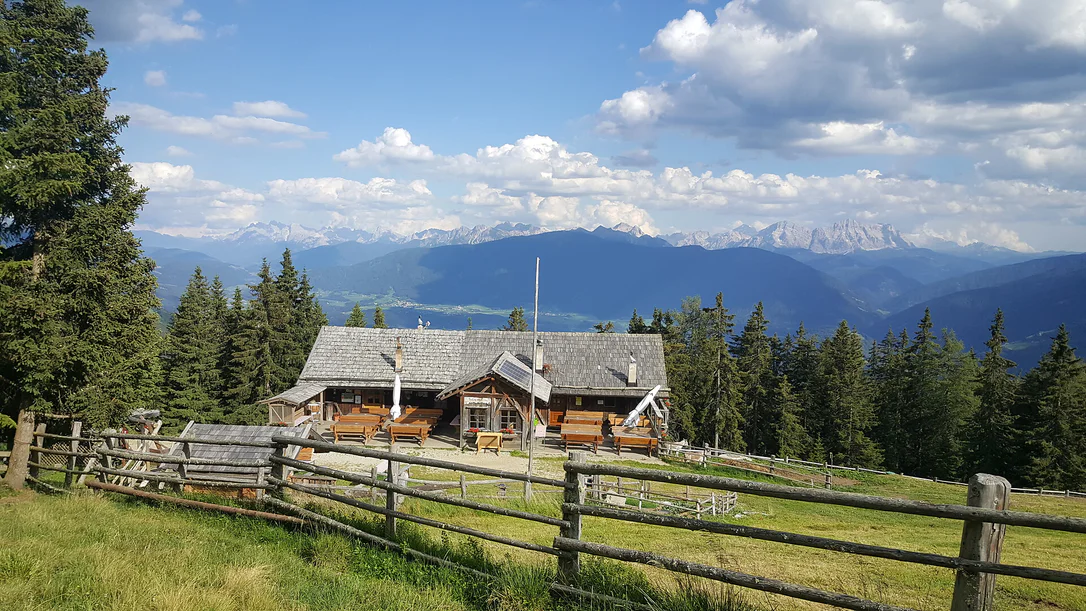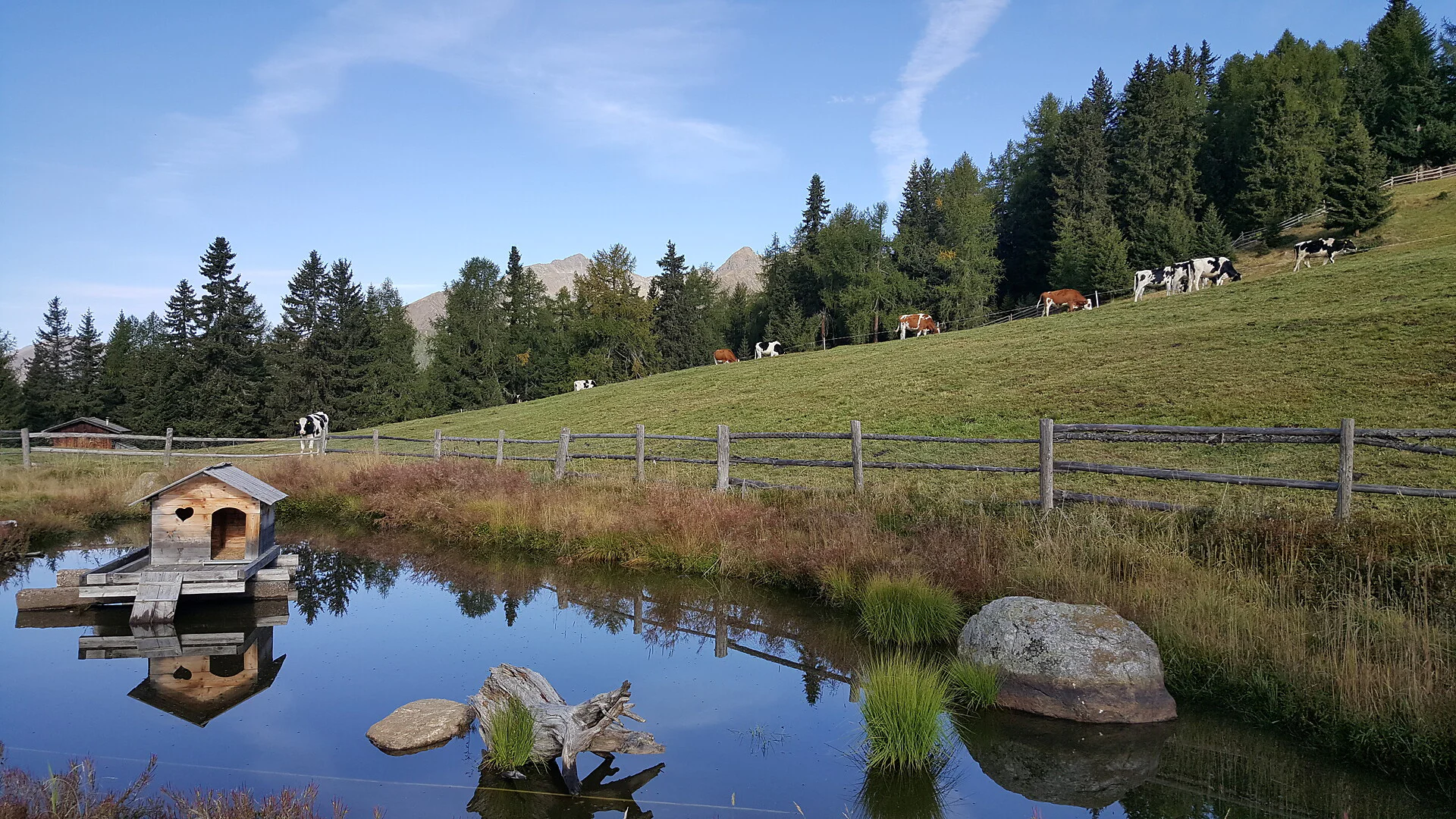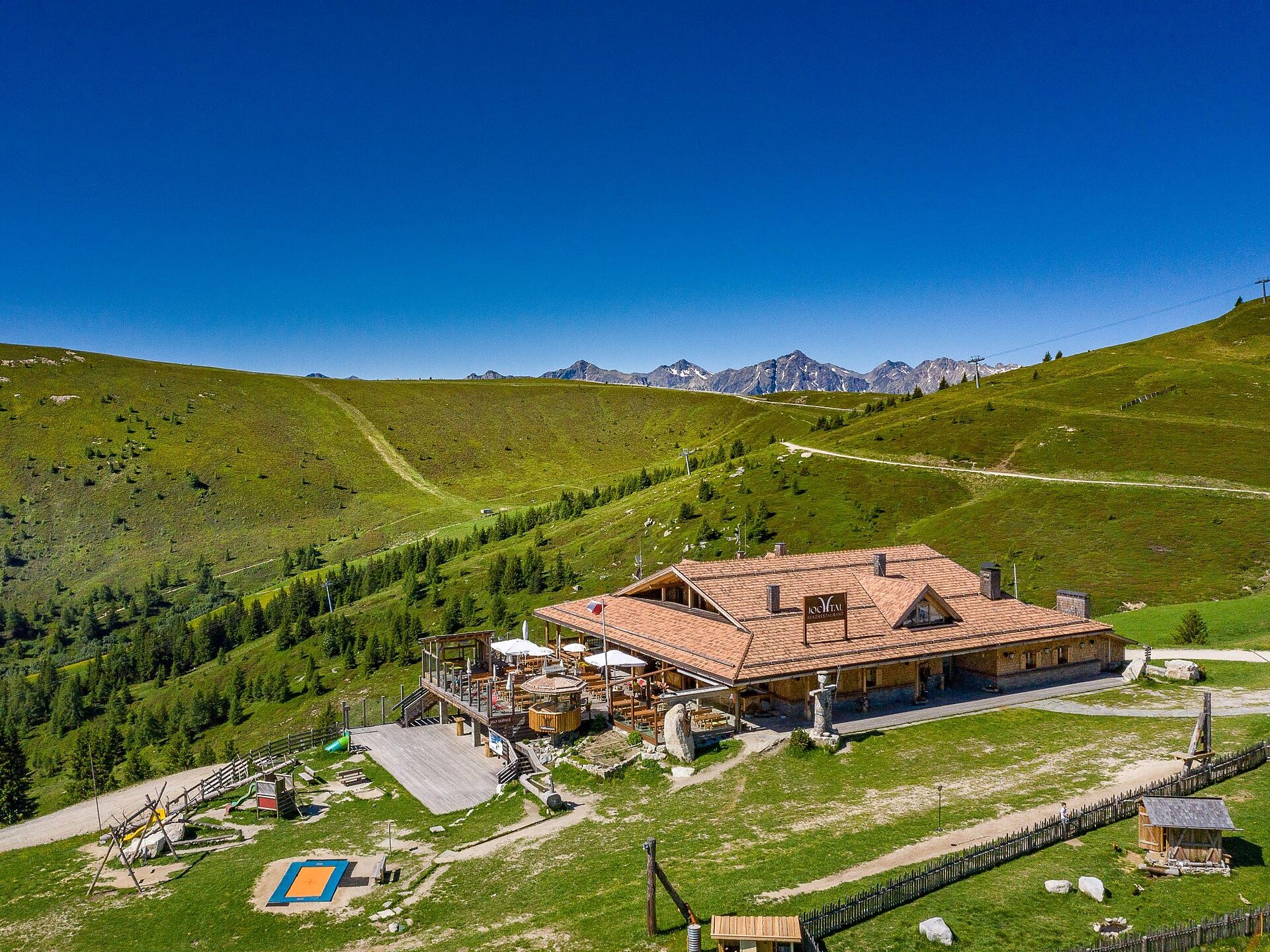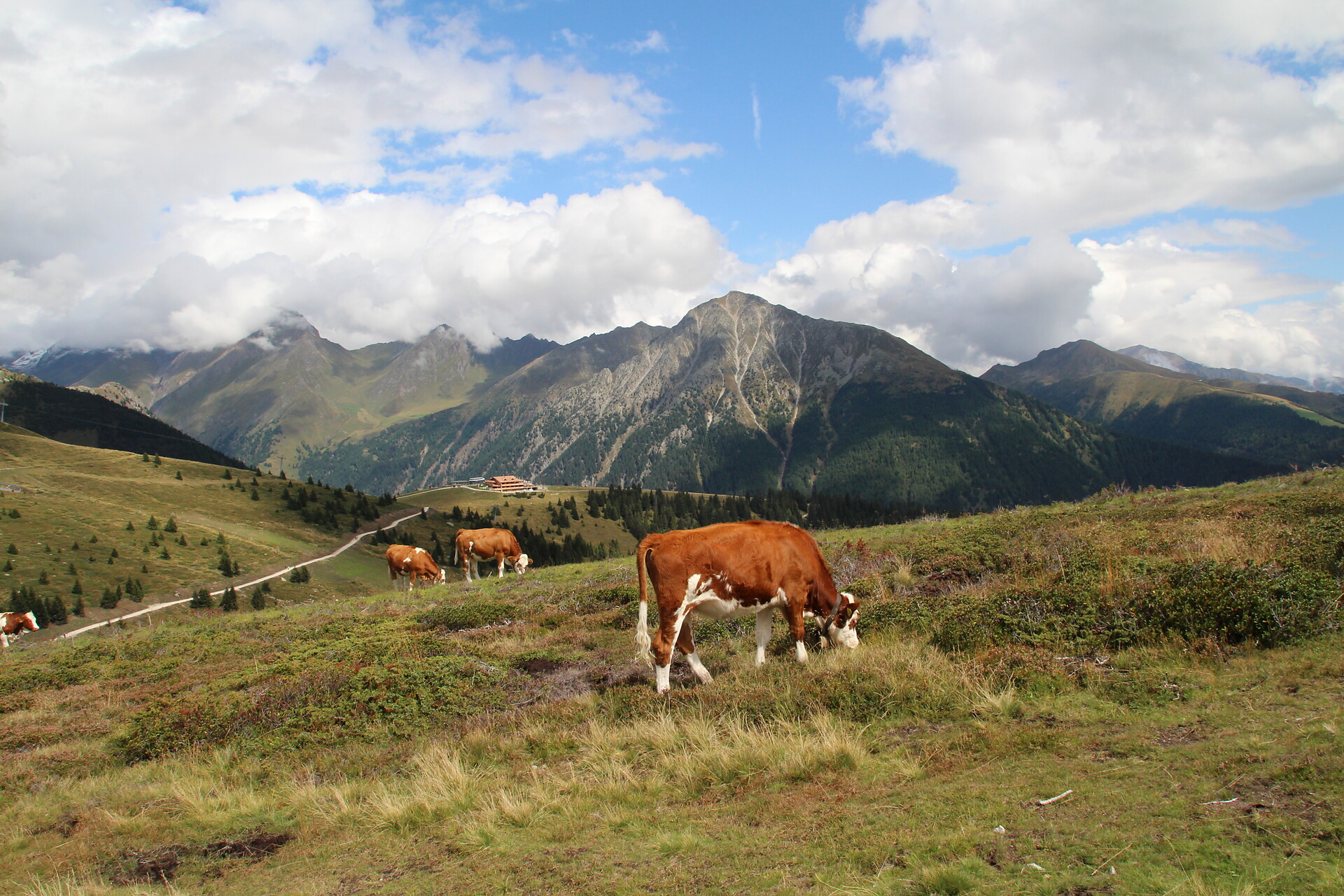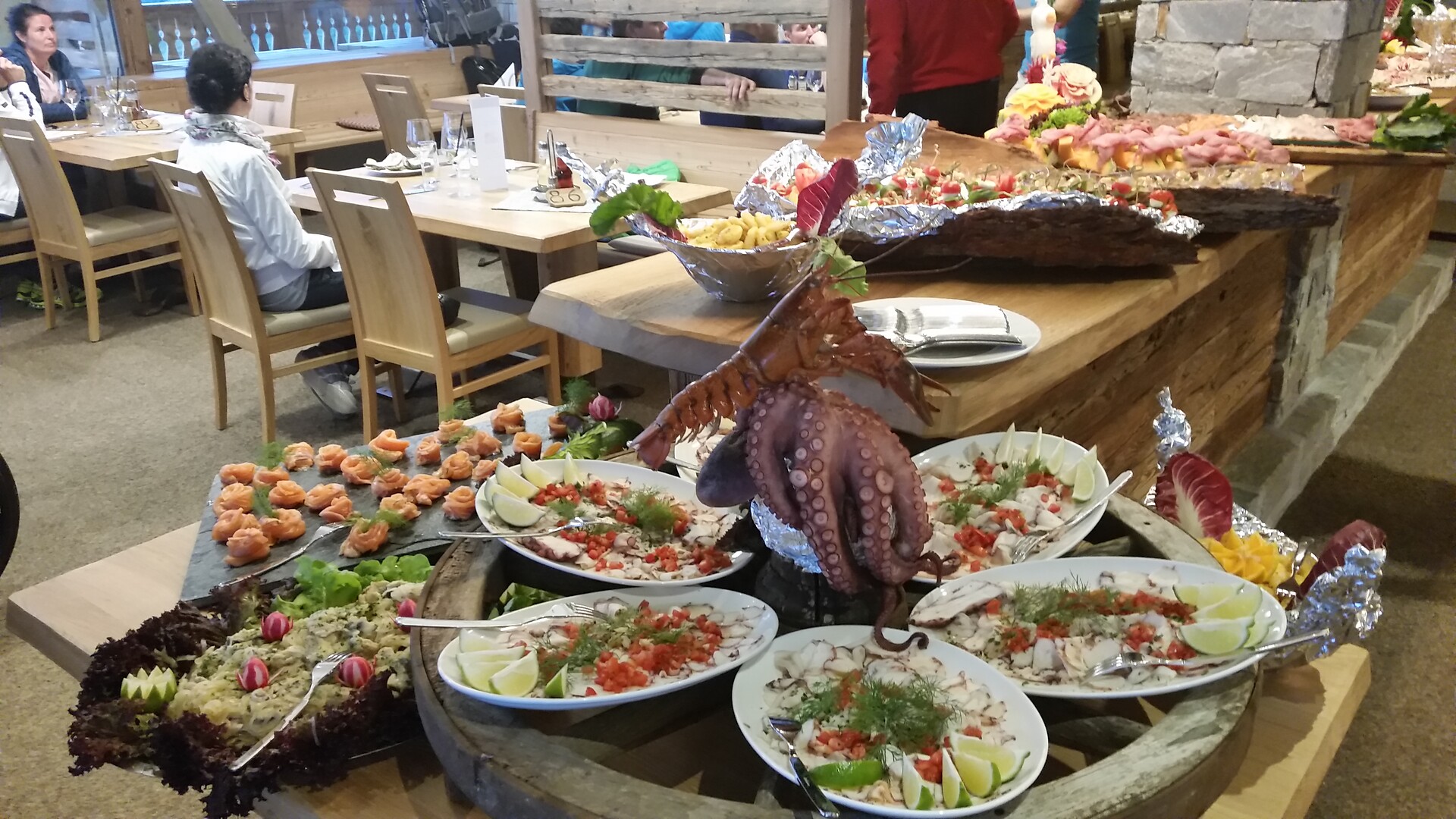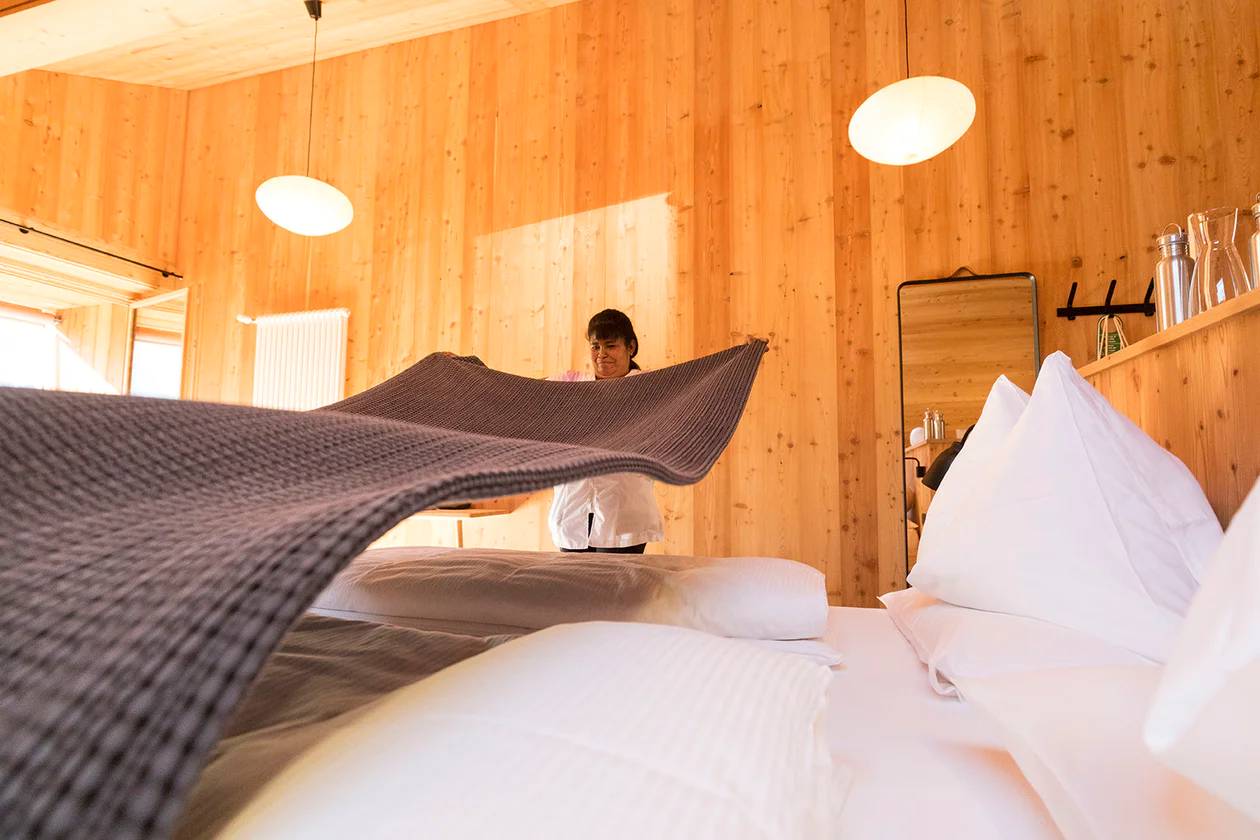Alpine Farms
Mühlbach/Rio di Pusteria, Brixen/Bressanone and environs
The Anratterhütte is the ideal palce for family celebrations. South Tyrolean citchen with homemade "Schlutzer", "canederli/Knödel" and other specialties from the region.
Open from mid May to end of October.
Opening hours in winter are those of the skiing area.
From Spinges to the anratterhütte it takes about 2 hours at least.
It takes about 1 hour from the cablecar mountain station in Vals to arrive at the Anratterhütte.
